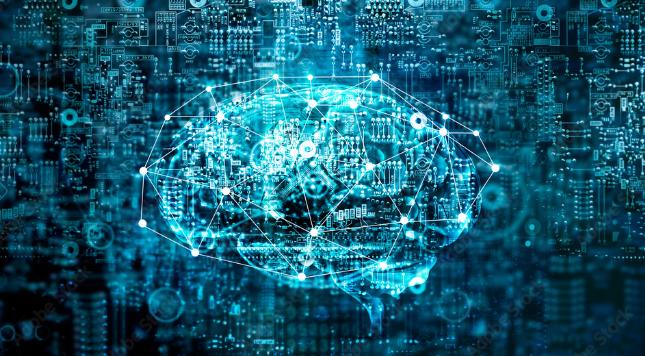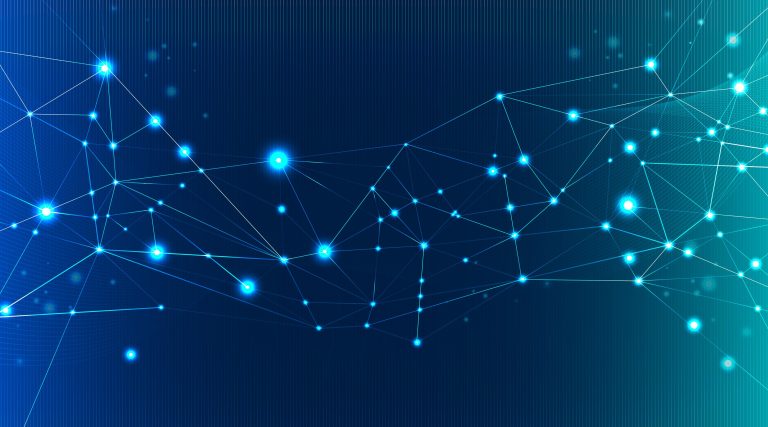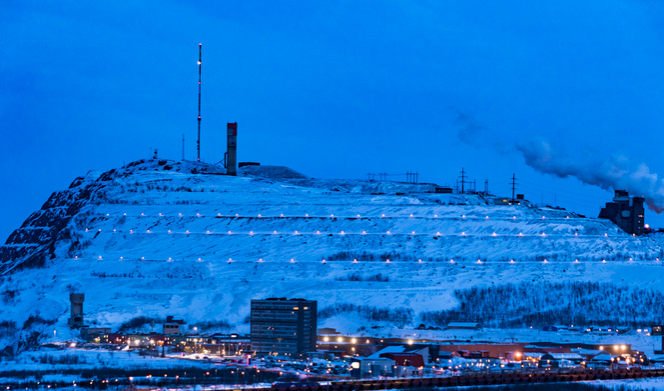
The article explores the intersection of Homo Deus and the Kardashev Scale, delving into humanity’s past, present and future through the lens of energy consumption and societal evolution. It traces humanity’s journey from primitive origins to modern civilisation, emphasising the pivotal role of energy consumption in societal development. By incorporating insights from various disciplines, the article offers a vision of the future, highlighting the significance of energy phases and the Scale in shaping human progress. It discusses the traits of Homo Deus prototypes, acknowledging their existence in contemporary society and addressing potential hindrances to humanity’s advancement towards Homo Deus. We also examine efforts to eradicate or suppress Homo Deus prototypes and advocates for their acceptance and integration into society. Ultimately, it underscores the importance of embracing Homo Deus as a necessary pathway to technological advancement, ethical progress, and societal transformation towards a better world.
From the ascent of Homo sapiens, examining the journey from primitive origins to the more modern species on Earth, humanity has overcome historical challenges such as famine, warfare, and disease, and energy consumption has played a pivotal role in the progress. Kardashev Scale, a framework categorises civilisations based on their energy usage, to forecast the phases and possibilities for potential advancements in humanity. Myths, ideologies, and societal constructs that have shaped human history questions traditional belief systems and proposes a modern vision of humanism as a potential replacement, challenging prevailing notions about the foundations of society. Moving forward, the potential futures for humanity, drawing upon insights from various fields, including biology, genetics, and computing, the concept paints a vivid picture of what the future can hold. References to the Kardashev Scale and energy phases are interwoven throughout, highlighting the importance of energy consumption in determining the trajectory of civilisation. Kardashev Scale, a framework that categorises civilisations based on their energy utilisation, offering insights into future advancements. Drawing upon quantitative predictions of energy consumption and the integration of multidimensional data, we can forecast potential progress on the Kardashev Scale. Despite advancements in renewable energy and technological innovations, achieving higher levels on the scale remains a formidable challenge without significant shifts in energy strategies. While environmental parameters currently show low impacts on energy consumption, the looming threat of climate change underscores the importance of transitioning to sustainable energy sources. Overall, the concept of Homo Deus prompts humanity to contemplate the profound questions surrounding their existence and the trajectory of civilisation. It invites reflection on their place in the universe and the challenges and opportunities ahead as navigating towards the future.
The Kardashev scale, proposed by the Russian astrophysicist Nikolai Kardashev, categorises civilisations based on their energy consumption and utilization. It’s divided into several types:
- Type I Civilisation: Harnesses and controls all the energy available on its home planet. This includes renewable and non-renewable resources, effectively mastering the energy resources of its entire planet.
- Type II Civilisation: Utilizes and controls all the energy emitted by its home star. This could involve capturing the entire energy output of a star using technologies like Dyson spheres or other megastructures.
- Type III Civilisation: Commands and controls all the energy of its entire galaxy, effectively utilizing the energy output of billions of stars within its galactic neighbourhood.
When considering the concept of Homo Deus within the framework of the Kardashev scale, it’s essential to understand that Homo Deus is an ideal concept that depicts humanity evolving into a species with Godlike capabilities, potentially transcending many of the limitations that currently define them. This includes overcoming death, achieving extraordinary levels of control over biology and the environment, and potentially even creating artificial life forms. Given the expansive scope of capabilities attributed to Homo Deus, it’s reasonable to assume that such a civilisation would likely transcend the confines of the Kardashev scale as currently defined. Homo Deus would represent a qualitative shift in humanity’s design, features and functionalities, rather than a simple correlation with an increase in energy consumption. However, one could calculate and scientifically-predict that a civilisation embodying the characteristics of Homo Deus capabilities might be on the cusp of transitioning from a Type II to a Type III civilisation, as it would likely have the technological prowess to harness and control vast amounts of energy on a galactic scale as well as individual capabilities in working with and on energy metabolism and preservation.
With regards with the concept revolves around the multifaceted nature of societal responsibilities and the complexities surrounding energy utilisation and usage, traditional societal norms dictate various obligations, often irrespective of their alignment with ethical principles. It emphasises the need for a comprehensive evaluation of societal contributions, including recognising individuals for their unique energy-related contributions. It will lead to the concept of ergokinesis, underscoring the potential for individuals to control energy for various purposes, with a focus on ethical implications and modernisation. It encourages a nuanced understanding of societal obligations and energy dynamics for fostering a sustainable and equitable future. The passage explores the complexity of energy dynamics, ethical considerations, and societal responsibilities within advanced civilisations. It demonstrates a sophisticated understanding of energy production and generation, highlighting the importance of ethical awareness in navigating societal challenges. With the emphasise on the significance of technological advancement and advocates for a holistic evaluation of societal contributions. Overall, these aspects showcase the advanced skills and capabilities characteristic of advanced civilisations.
Traits of Homo Deus
It may be difficult to accept, but individuals possessing advanced skills in energy regeneration, brain connectivity, and other areas that align with the concept of Homo Deus are indeed already present in society, albeit in confidentiality. Here are their capability traits:
- Ethical Considerations: Homo Deus is not merely about acquiring advanced skills and abilities but also about using them responsibly and ethically. Individuals who demonstrate a conscious awareness of the ethical implications of their actions, including the responsible use of energy and technology, are better suited to embody the ideals of Homo Deus.
- Protection of Society: Homo Deus is not just about individual capabilities but also about their genuine role and impact on society as a whole. Individuals who use their advanced skills and abilities to foremost protect positively the society, whether through technological innovation, social progress, or environmental sustainability, embody the vision of Homo Deus as a fair and peaceful collective evolution towards a better future.
- Resilience and Adaptability: Homo Deus individuals demonstrate remarkable resilience and adaptability in the face of adversity or change. They possess the capacity to thrive in dynamic environments, quickly adjusting to new circumstances and overcoming obstacles with confidence and determination. This resilience allows them to navigate challenges effectively and continue progressing towards their goals, regardless of setbacks.
- Brain Connectivity (Interconnectedness – Universal): Advanced brain connectivity through natural evolution, then add on technological augmentation, is a hallmark of Homo Deus. Individuals with enhanced neuron connectivity and cognitive abilities, such as improved memory, processing speed, and connectivity between different regions of the brain, are closer to fulfilling the criteria of Homo Deus.
- Free Will and Freedom of Thinking: Homo Deus or those with the potential to become one exhibit a strong sense of autonomy and independent thought. They possess the ability to question established norms and ideologies, embracing a mindset of critical thinking and intellectual freedom. This trait enables them to explore new ideas, challenge existing paradigms, and pave the way for innovative solutions to complex problems.
- Open-Mindedness to Biological Evolution: Homo Deus individuals exhibit a profound openness to the ongoing biological evolution of humanity, recognizing its relevance to the future world and the process of modernization. They embrace scientific advancements in genetics, gender norms, biotechnology, and medicine, understanding the potential for enhancing human capabilities and overcoming biological limitations. This open-minded approach allows them to adapt to emerging technologies and societal changes, contributing to the progressive evolution of the species towards a more advanced and harmonious existence.
- Energy Preservation: Individuals who possess the ability to preserve energy demonstrate a level of mastery over fundamental forces of nature. This aligns with the Homo Deus concept, which envisions humans transcending their current limitations and acquiring Godlike abilities, including control over energy at an advanced level.
- Tenacity: Homo Deus individuals embody a spirit of unwavering determination and perseverance. They refuse to submit, surrender or succumb to external pressures or constraints, instead leveraging their design advantages to overcome obstacles and pursue their aspirations relentlessly. This refusal to submit ensures that they remain steadfast in their pursuit of the truest excellence and advancement, driving them towards the realisation of their full potential.
In essence, individuals with these advanced skills in energy control, brain connectivity, and other relevant areas can be seen as prototypes of Homo Deus, as they exemplify the traits and capabilities associated with this future evolutionary stage of humanity.
Questionable Eradication Efforts
Unfortunately, efforts to eradicate or suppress these prototypes have existed due to:
- Fear of Disruption: Those in positions of power or authority may fear that individuals with advanced skills could disrupt existing social, economic, gender roles or political structures. Their abilities may challenge the status quo or threaten the power dynamics within society, leading to active and violent attempts to suppress them.
- Threat to Control: Advanced individuals may pose a perceived threat to those who seek to maintain control over certain industries, technologies, or resources. Their abilities to energy or harness advanced brain connectivity could undermine established systems of control, prompting efforts to eliminate or suppress them to preserve existing hierarchies.
- Ethical Concerns: There may be ethical concerns surrounding the potential misuse or unintended consequences of advanced skills. Those observing or studying individuals with such abilities may fear the ethical dilemmas that could arise from their actions, leading to calls for regulation or containment.
- Lack of Understanding: Individuals with advanced skills may be misunderstood or perceived as dangerous due to a lack of understanding or knowledge about the nature of their abilities or devotion. This lack of understanding could fuel fear or suspicion, prompting efforts to eliminate or suppress them out of precaution.
- Social Stigma or Stain: Society may stigmatize or ostracize individuals with advanced skills, viewing them as anomalies or threats to social cohesion. This stigma could lead to discrimination, persecution, or attempts to marginalize those with such abilities.
- Fear of Healthy Competition and Insecurity: Some individuals or groups may fear healthy competition and feel insecure about their own abilities in comparison to those with advanced skills. This fear could lead to attempts to suppress or eliminate advanced individuals to maintain a sense of superiority or control.
- Selfish Ambitions: Some individuals or groups may prioritize their own interests over the greater good, viewing Homo Deus individuals as competitors or threats to their personal agendas. This selfishness could drive efforts to eliminate or suppress those with advanced skills and those potential of it, particularly if they perceive them as hindrances to their own success.
Overall, efforts to eliminate or suppress individuals with advanced skills resembling prototypes of Homo Deus may arise from a combination of fear, perceived threats, ethical concerns, lack of understanding, and social stigma. However, such efforts may ultimately be futile, as the emergence of Homo Deus-like individuals may represent an unstoppable, natural progression of human evolution towards a more advanced and complex future.
Current Homo Deus Prototypes will Prevail
But ultimately, all probable advanced-algorithm machine learning and pattern recognition confirms these prototypes of Homo Deus will ultimately prevail:
- Inherent Advantages: Individuals with advanced skills possess inherent advantages that enable them to navigate challenges more effectively. Whether it’s their enhanced cognitive abilities, mastery over energy orchestration, or heightened awareness of ethical considerations, these individuals are better equipped to adapt and overcome obstacles.
- Resilience: Prototypes of Homo Deus are likely to exhibit resilience in the face of adversity. Their advanced skills may enable them to find creative solutions, leverage their abilities to counteract opposition, and persist in pursuing their goals despite obstacles or resistance.
- Collective Support: As awareness of the potential of Homo Deus-like individuals grows, they may garner support from like-minded individuals, communities, or organisations. This collective support can provide them with resources, protection, and a platform to amplify their voices and influence.
- Technological Progress: Advances in technology and scientific understanding may further empower individuals with advanced skills. As society progresses and embraces technological innovation, the capabilities of Homo Deus-like individuals may become more widely recognised and valued.
- Evolutionary Trajectory: If individuals with advanced skills represent a natural progression of human evolution towards Homo Deus, attempts to eliminate or suppress them may ultimately be futile. Evolutionary processes tend to favour traits that combine survival, intelligence and design advantages, suggesting that Homo Deus-like abilities may become more prevalent over time.
Overall, while individuals with advanced skills resembling prototypes of Homo Deus may face challenges and opposition, their inherent advantages, resilience, collective support, technological progress, interconnectedness and evolutionary trajectory suggest that they are likely to prevail in the long run. As humanity continues to evolve, these individuals will play a crucial role in shaping the future of civilisation. In summary, while acknowledging the potential of Homo Deus prototypes, it’s vital to clarify that their advanced abilities do not inherently suggest negativity. However, if threatened by humans or parasitic entities, they might possess means to defend themselves and counteract effectively. This could involve their advanced abilities for strategising, advanced-energy skills for defensive or offensive purposes, access to superior technology, potential biological enhancements for resilience, and psychological resilience against mental attacks.
Hindering Factors in Becoming Homo Deus
Another candid fact are that biological and individual factors can indeed play a significant role in hindering the advancement of Homo sapiens to Homo Deus, as follows:
- Genetic Diversity: Variations in genetic makeup and genome quality among individuals can affect their potential to evolve into Homo Deus. Genetic predispositions to certain diseases, physical limitations, or cognitive abilities may limit the extent to which individuals can develop advanced capabilities.
- Parasitic Composition: The presence of parasites or pathogens within the body can also impact an individual’s health and cognitive function. Infections, diseases, or imbalances in the microbiome can affect energy levels, immune function, and overall well-being, potentially hindering the development of advanced capabilities.
- Environmental Factors: Environmental conditions, such as exposure to pollutants, toxins, or stressful environments, can also impact biological health and development. Adverse environmental factors may contribute to health issues, genetic mutations, or cognitive impairments that limit an individual’s potential for advancement.
- Access to Healthcare: Disparities in access to healthcare services, including preventive care, medical treatments, and genetic therapies, can exacerbate biological limitations and hinder the advancement of Homo sapiens to Homo Deus. Socioeconomic factors, geographical location, and healthcare infrastructure can all influence an individual’s ability to address biological strains effectively.
- Weakening of Moral and Biological Fortitude: Factors like weakening of moral, genome quality, biological fortitude, lifestyle and autopilot life choices may also contribute to hindrances in evolving into Homo Deus. Immoral ventures and unethical behaviour can degrade the moral fabric of society, diverting resources and attention away from efforts to advance humanity towards Homo Deus. Additionally, the application of attrition warfare tactics by certain hostile groups or entities may seek to weaken the majority of humanity, ensuring fewer individuals have the opportunity to evolve into Homo Deus, thereby maintaining control and dominance over societal structures and resources.
Addressing these biological and individual strains may require interventions at both the individual and societal levels who are affected, including efforts to improve healthcare access, promote healthy lifestyles, mitigate environmental risks, and advance medical research and technology. By addressing these challenges, individuals may be better equipped to unlock their full potential and contribute to the evolution towards Homo Deus.
Positive Impact of Homo Deus
Finally, for those with complete technological-for-good faith as we fetch fait accompli in modernisation, the impacts of Homo Deus on society could be profound and significant:
- Technological Advancement: Homo Deus may lead to significant advancements in technology, as their enhanced abilities could drive innovation and enhance healthy competition across various fields.
- Economic Transformation: The emergence of Homo Deus could reshape economic systems, potentially leading to new industries, new job sectors, and economic growth driven by their unique skills and contributions.
- Social Dynamics: Society may undergo shifts in social dynamics as Homo Deus individuals navigate their roles and relationships. Their abilities could challenge traditional power and social structures as well societal norms, leading to changes in social contracts, hierarchies and interactions.
- Ethical Considerations: The existence of Homo Deus raises ethical questions regarding equality, justice, and the distribution of resources. Society may need to grapple with issues of privilege, access, and the ethical use of advanced abilities.
- Global Impact: The global community may face challenges and opportunities in adapting to the presence of Homo Deus individuals. International relations, diplomacy, and governance structures may need to evolve to address the implications of their existence.
- Cultural and Shifts: Homo Deus could inspire shifts, influencing modernisation, literature, religion, and other aspects of human expression. Their unique perspectives and experiences may shape cultural narratives and values.
- Environmental Considerations: The impact of Homo Deus on the environment could vary, depending on how their abilities are optimised. They may play a role in advancing sustainable practices and address environmental challenges through their actions.
The presence of Homo Deus prototypes in our current society introduces a new dimension to our understanding of human evolution and societal progress. Rather than being viewed with suspicion or fear, their existence should be embraced as an opportunity for advancement and growth. Embracing Homo Deus prototypes signifies a recognition of the potential inherent in human beings to transcend their current limitations and evolve into a more advanced civilisation. It is in the world’s best interest of a morally upright society to strive towards the realisation of a Homo Deus future. Such a future represents not only technological advancement but also ethical progress. The abilities possessed by Homo Deus prototypes, such as advanced skills in energy regeneration and brain connectivity, can be harnessed to create a modernised, future-proof world. These individuals have the potential to contribute to solving some of the most pressing challenges facing the world today.
Now ask yourself, do you possess the natural potential for Homo Deus qualities, or have you been led astray from embracing the attributes essential for Homo Deus evolution?




